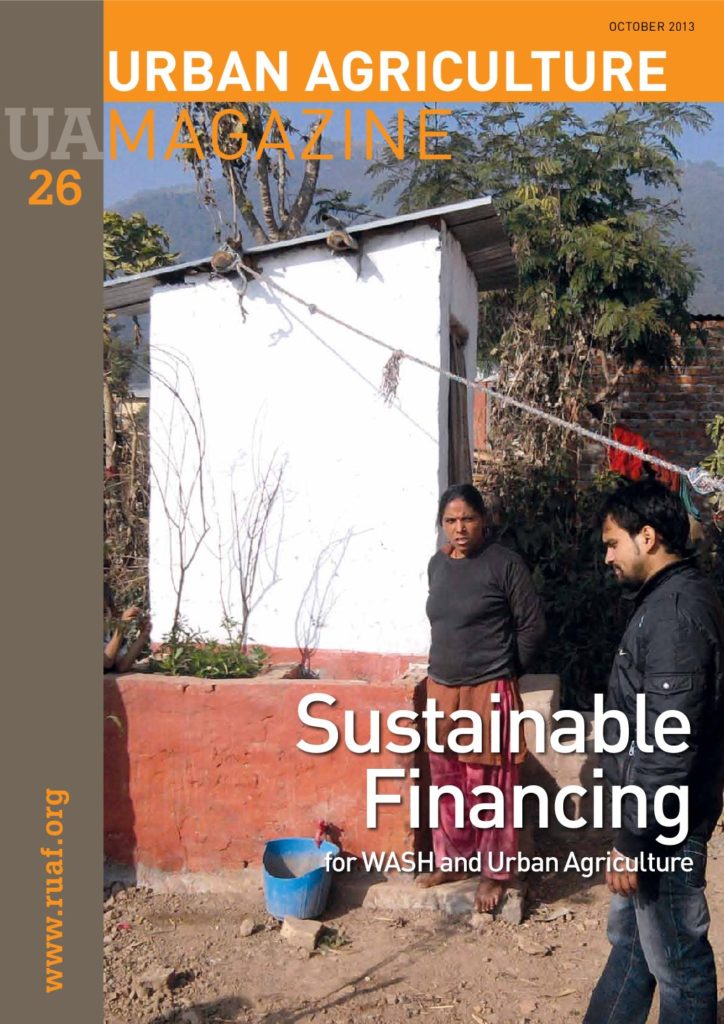Sustainable financing can be viewed from two perspectives. According to the first perspective, an adequate mix of public, private and local financing is necessary. This is to avoid dependency on external, often project related, funding.
The second perspective relates to the purpose of the investment. Here we focus on value chains in the sanitation and (peri)urban agriculture sectors.
This issue, no. 26, is a collaborative effort of the RUAF Foundation and WASTE, both members of the Dutch WASH Alliance. The emphasis is on exploring options for the financing of urban agriculture as part of the sanitation value chain: valorisation of urban waste with clear benefit impacts to the urban and periurban agricultural sector.
Also available in Portuguese.
Contents:
- Sustainable Financing, Scaling Up WASH and Urban Agriculture
- Learning from best practices in the Global South for sustainable (peri)urban food systems in Europe
- Financing Urban Agriculture: Seeking the right mix of subsidies, credit, savings, and resource mobilisation
- From Microsavings and Lending to Linkages with the Central Bank
- Guarantee Loans for Urban Agriculture in Gampaha, Sri Lanka
- Developing Typologies for Resource Recovery Businesses
- The African Finance Facility for Water and Sanitation
- Experiences in Developing and Supporting a Lead Sanitation- Focused Business in Malawi
- Waste Ventures Fund
- Harvesting Knowledge on Sustainable Financing in the Philippines
- Safe and Productive Use of Waste, bringing in RUAF experiences in WASH
- Business Opportunities in Safe and Productive Use of Waste in Tamale
- WASH and Food Security in Surkhet District, Nepal
- Linking WASH to the National Programme on Urban Agriculture in Dire Dawa, Ethiopia
- Urban – Rural Linkages and WASH in Kajiado County, Kenya

